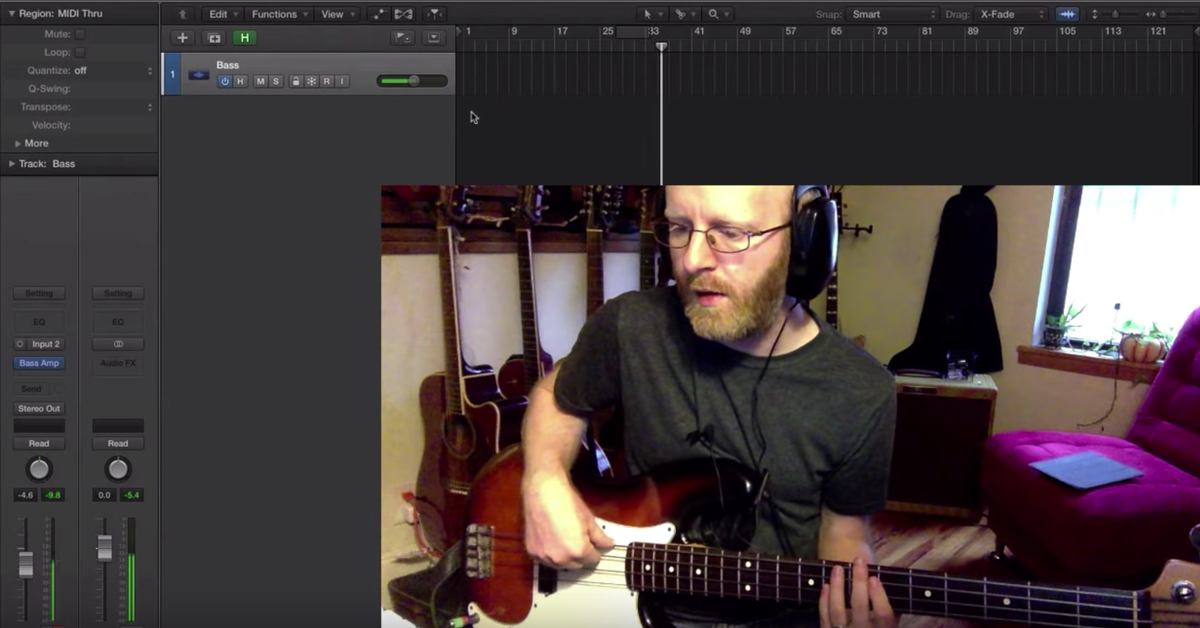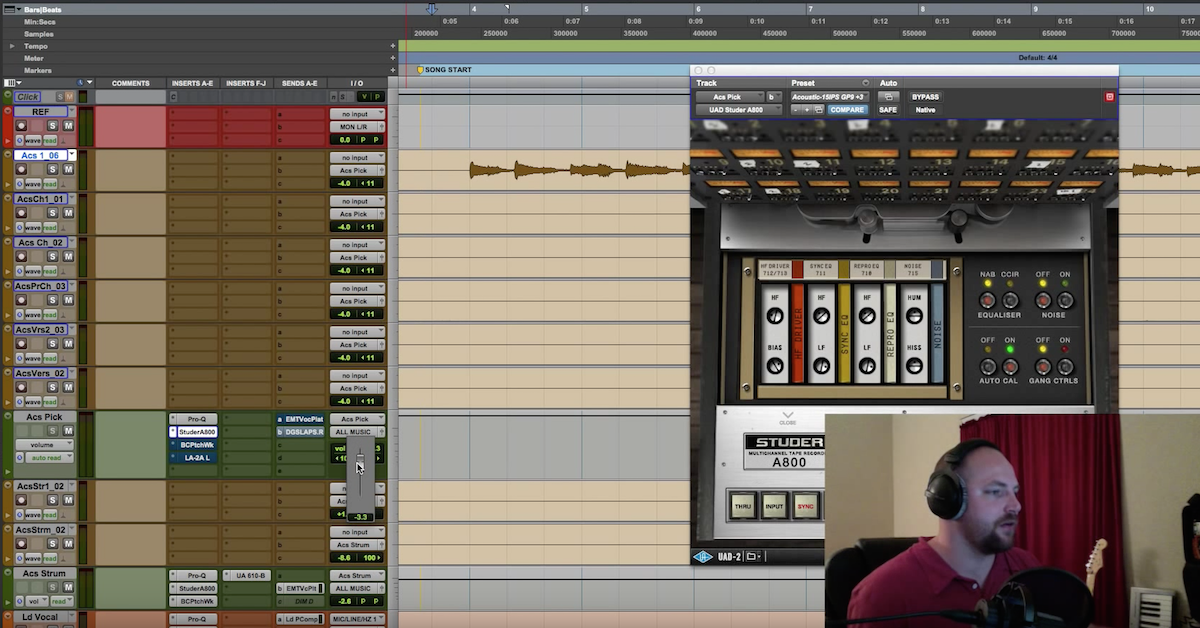5 Ways Music Production Is Like Cooking (+ What That Means for Your Mixes)
Article Content
I’ve often thought that if I hadn’t decided to pursue music production as a career, the only other thing I might approach with the same level of passion is cooking. Even in my life as a music maker, preparing food is an important part of my day, and something I get a lot of satisfaction from.
I’ve talked to quite a few similar-minded music producers/amateur chefs who not only share those twin passions but agree with me that the two disciplines have a lot in common. Both could be called a fusion of art and science. Both involve bringing together various elements and combining them in a way that showcases their individual strengths, while also creating a whole that is greater than the sum of those parts. Both require a discerning palette, or ear, to make snap decisions on the fly in a process that can be extremely time-sensitive.
Though I could make comparisons like “EQ is like salt,” or “butter and oil are like reverb,” I don’t think those sorts of analogies hold up in all cases. Rather, the similarities between music and cuisine have to do with the spirit with which we approach these crafts. Will this article help producers be better cooks or vice versa? Probably not! Even so, I take inspiration from the time I spend in the kitchen (and at the grill) into the studio, and my hope is that you can find some inspiration there too.
Ingredients Matter
There’s no substitute for working with high-quality ingredients – whether that’s a thick, fatty piece of salmon or a killer vocal take. But that doesn’t mean we need to work with top-shelf ingredients in every instance! In fact, sometimes cheaper ingredients are really what you want: chances are your favorite pizza place is using canned tomatoes, not fresh ones, to make their sauce.
The important thing here is to understand the role each ingredient plays in the recipe. Top-tier ingredients typically need less seasoning and usually deserve to be showcased. Lower-quality ingredients — and instruments, performances, and processing — still have a place in the kitchen, but will require different sorts of treatment, and will often be featured less centrally.
From the Kitchen to the Studio:
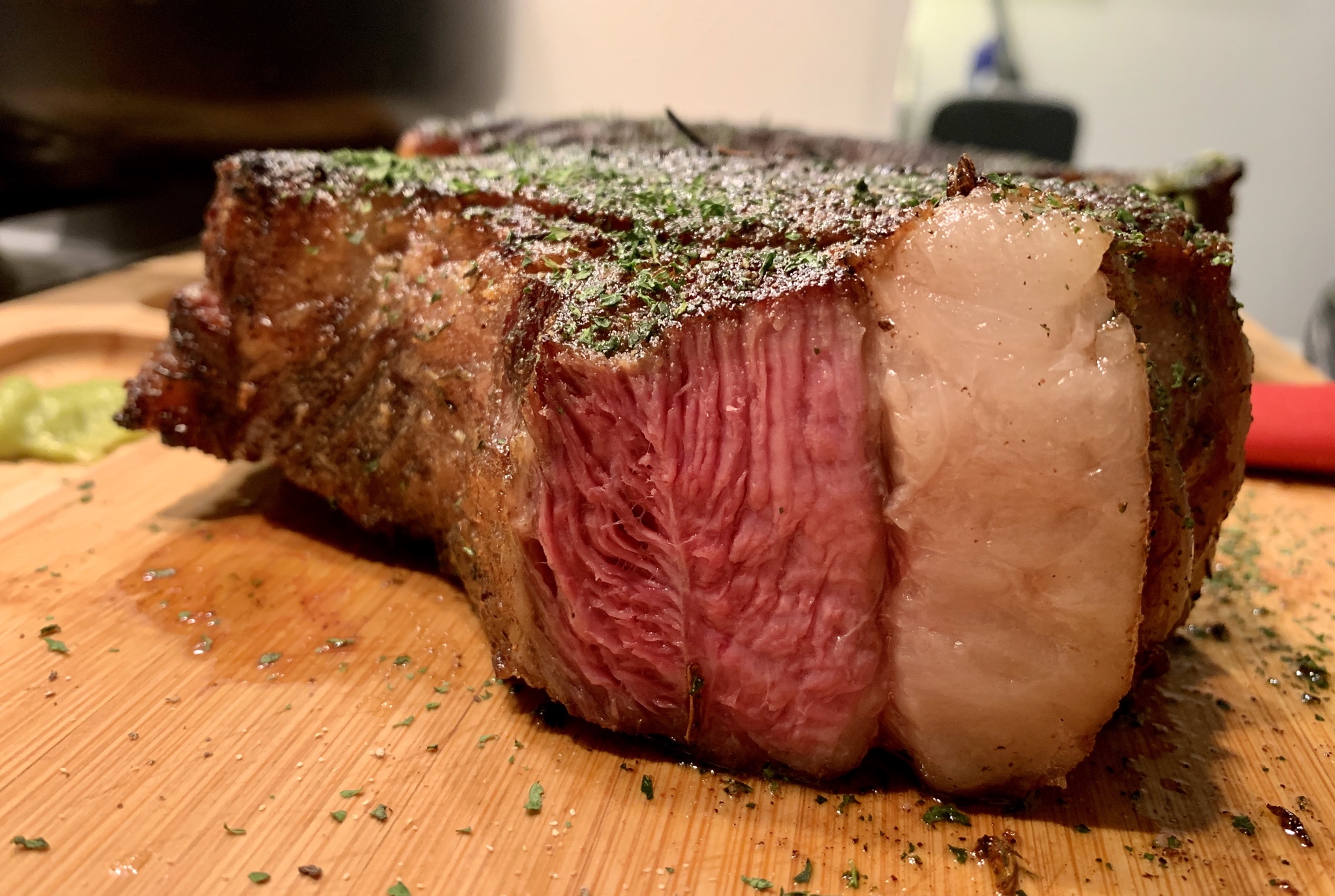
Don’t drown a great vocal in ketchup-y reverb
If your session includes the equivalent of a prime ribeye, make it the centerpiece! Use processing to accentuate its character, rather than trying to transform it — like a subtle rub of salt and pepper before it hits the grill.
If your centerpiece needs to be made from lower grade ingredients – like when a singer struggles to deliver good takes on the mic — seasoning (processing) will play a bigger role, maybe even transforming the part entirely.
Other times, lower quality ingredients don’t need to be masked but will serve a more supporting role. Are you working with pitchy backup vocals? Maybe each track doesn’t need to be tuned and polished — instead, treat the part as a garnish. Let it stay rough and “rustic” to add character.
A Great Recipe Helps … But Only So Much
You could look at websites like this one as being similar to your favorite sites to find recipes – a place where pros share tips and tricks they use in their own kitchens and studios. Learning from people who have honed their craft can absolutely help us make more informed choices, but in reality, it’s hard to replicate the conditions of a recipe writer’s kitchen: maybe you’re missing spices, or the recipe calls for a bone-in cut of meat, but all you have is boneless.
You can’t expect to follow a recipe to the letter if your ingredients or kitchen don’t match the chef’s intention. Great cooks and great producers alike know how to work with the tools and ingredients that they have. Adapting to changing conditions is a must if you expect to get a great result every time.
From the Kitchen to the Studio:
The most important tool in your kitchen and your studio is you! Pro tips and best practices will take you far, but you have to be able to discern when things are working as planned, and when they require a different approach.
Developing the ability to know when and how to adapt to shifting circumstances takes practice, but it’s a crucial difference between a master and an amateur. Don’t expect to call up a plugin preset or slap on some settings you saw in a tutorial video and be done. Use your ears to make sure your mix moves are working as intended, and be brave enough to admit it when they aren’t.
Don’t Overdo It; Don’t Underdo It
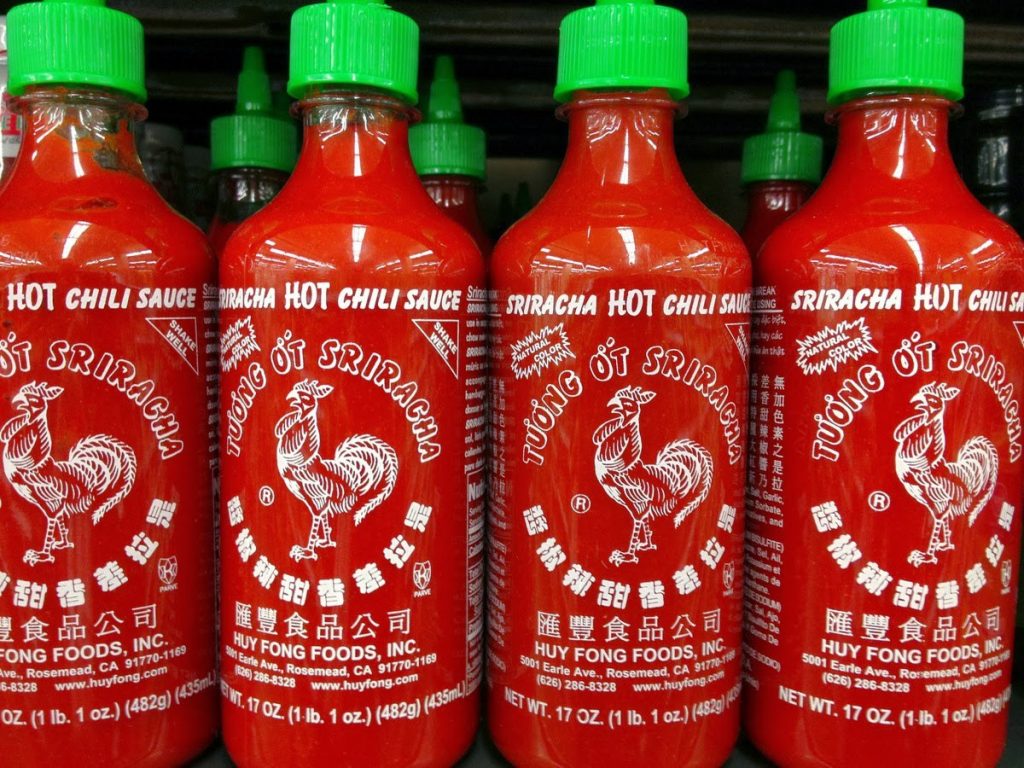
Always there for you when you need it
In cooking, this principle applies to cooking temperatures and times as well as seasoning: overcooking a piece of meat until it’s dry, or undercooking it and leaving bits raw; forgetting to add salt to make other flavors pop; drenching a stir fry in soy sauce, and then hoping that smothering it in sriracha will fix things (don’t act like you haven’t been there).
In the studio, you could apply this concept to everything from doing too many or too few takes, to leaving in ugly, muddy resonances, or dialing in too much compression. Just like you can’t “unbake” a burnt loaf of bread, you can’t “uncompress” a track that got slammed during tracking; similarly, adding salt when serving a dish is not the same as salting properly while preparing it.
From the Kitchen to the Studio:
Stop me if you’ve heard this one (from me), but the only thing that can guarantee you don’t go too far or not far enough is your judgment as a producer. To that end, approaching production with a clear sense of intention can go a very long way.
Know how many takes you need to get a solid comp — and stop there. Continuing to do unnecessary takes can be the sonic equivalent of leaving something in the oven after it’s done, each take getting dryer and more flavorless. Know when processing (like seasoning) needs to be overt and when it needs to be subtle, and learn how to tell when enough is enough.
Context Is Huge

If you’ve never had this, there’s still time
Remember my point earlier about how your favorite pizza place probably doesn’t use fresh tomatoes? That’s not laziness — the pizza we’re used to is supposed to have the flavor of canned tomatoes. On the other hand, can you imagine ordering a caprese salad and getting a canned tomato slopped onto some mozzarella?
The point here is that there is no absolute “right” or “wrong,” in cooking or production. Sometimes cheap ingredients are crucial, and nicer ingredients might be wasted in the same application. Other times, cheap, low-quality ingredients just taste … cheap, and low-quality.
From the Kitchen to the Studio:
Your favorite plugins, pieces of gear, and mix tricks will never be guaranteed to work equally well in all applications. There’s a reason a vintage U-47 might go for $15k — it’s a great mic — but that doesn’t mean it will sound great on every voice. It will simply be too dark and wooly for some, even if it is a coveted high-end piece of gear. Some voices are going to be better suited to other mics, even substantially less expensive, less “nice” ones. The mark of a good recording isn’t the value of the gear you used, it’s the sound coming out of the speakers.
It Pays To Experiment … But Don’t Ignore Fundamentals
Wild, previously unthinkable stylistic fusions and flavor pairings have become something of a standard in cuisine in recent years. Some of those unlikely combinations may seem to come totally out of the blue, but the ones that really work often follow tried-and-true formulas, even if they are executed in an unconventional way. Pay attention to the root flavors — or sonic elements — being combined, and you can see how fundamental principles are being observed.
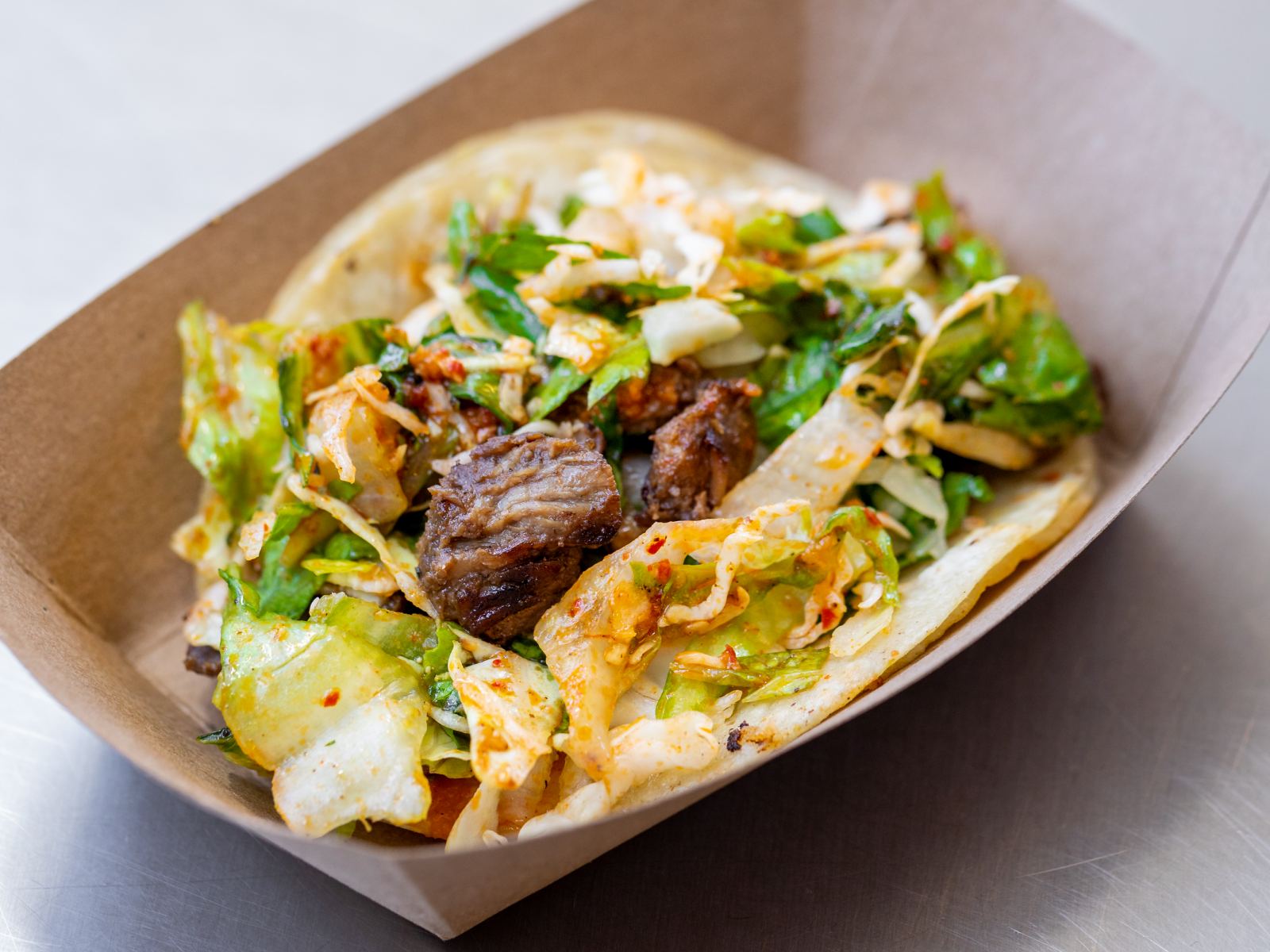
Free your mind and the rest will follow
LA’s Kogi Korean BBQ offers a great example of this idea in action. On the surface, the fusion of culinary styles from different ends of the globe (Korean BBQ and tacos) may seem kind of wild, but consider the fundamental flavors at work.
Tacos: marinated meat, often fire-grilled, served with salsas that add a mixture of sweetness, acidity, and spice.
Korean BBQ: marinated meat, fire-grilled, served with kimchi and sauces that add a mixture of sweetness, acidity, and spice.
The specific ingredients and nuances are different, for sure, but the root flavors at work share important similarities.
From the Kitchen to the Studio:
Every piece of music succeeds or fails on the terms of the genre or tradition it belongs to. If you’re pulling together ideas from opposite ends of the record store, consider what sonic qualities you like most in those influences, and which ones might work together well.
Are you bringing together sounds from one genre that is driving and loud with another that is subtle and dynamic? Or one that is abrasive and noisy with another that is catchy and danceable? Combinations like the ones I just described have surely been done millions of times. The thing the good ones will have in common is a clear sense of what will be rewarding to the intended listener.
Over the course of this article, I’ve mentioned a handful of times that great chefs and producers alike rely on their judgment daily to make decisions that will get the best result out of the ingredients in front of them. Though talent and good taste are certain factors that influence someone’s ability to work at a high level, none of the greats started great on day one.
The ability to know when something is working and when it isn’t, and then to know what to do to fix it, is something that can really only be honed over time, after repeated failures and successes. Even someone else’s proven recipe will have serious limitations in the hands of a chef who isn’t prepared to make those sorts of calls.
The takeaway from this is that real practice in the studio, and finishing projects, are extremely important for any producer or engineer looking to sharpen their skills. There’s no way to tell if your recipe worked if you don’t take a bite (or listen) when it’s done … and you can’t take that bite if you don’t get to “done” in the first place.



